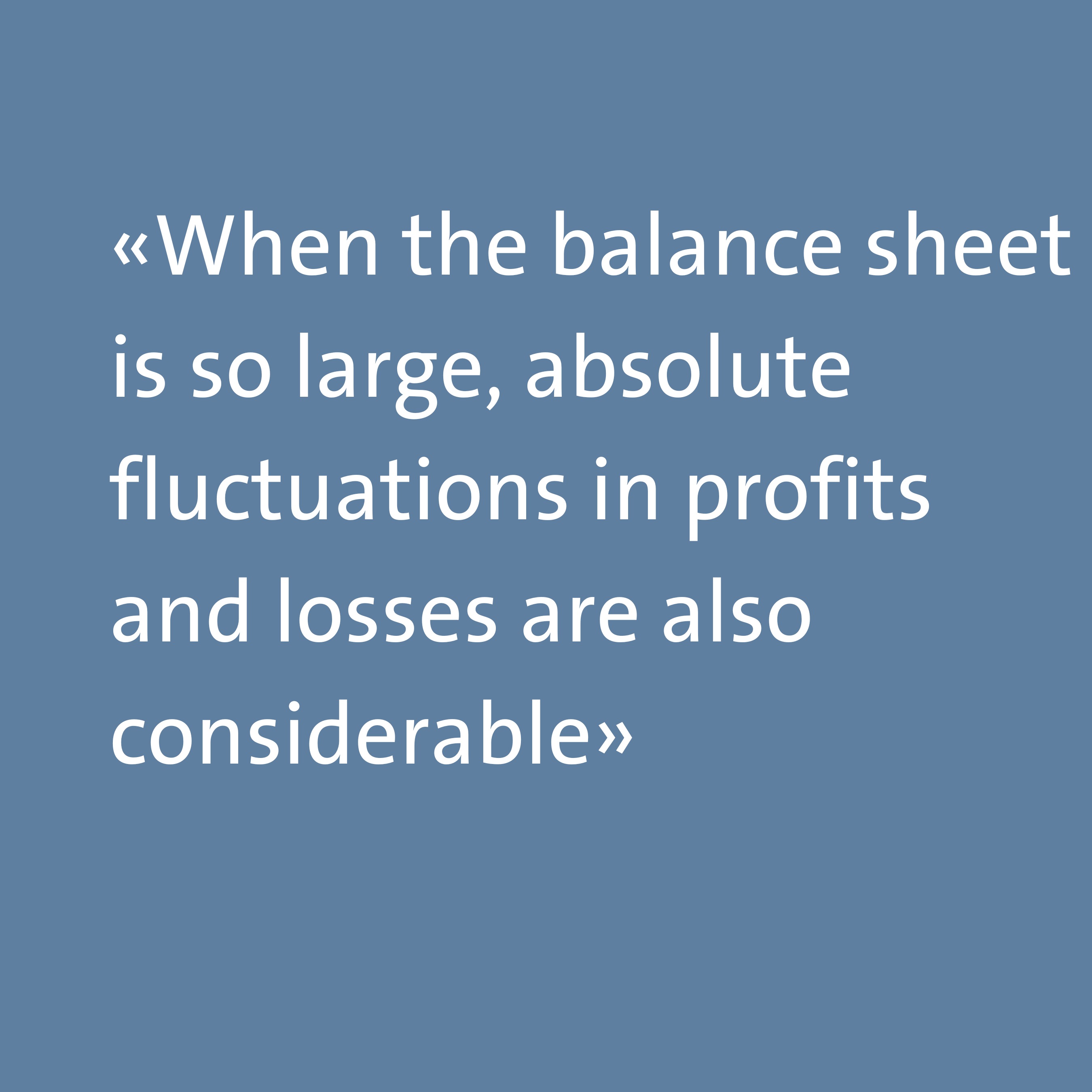Navigation auf uzh.ch
Navigation auf uzh.ch

Martin Schlegel: The SNB’s mandate is set out in the Swiss constitution and the law: The SNB pursues its monetary policy in the interests of the country as a whole. In concrete terms, this means that we ensure price stability, taking account of economic developments. For us, price stability means that consumer prices rise by less than two percent annually.
The SNB reviews its monetary policy through so-called monetary policy assessments on a quarterly basis. The assessment process lasts several weeks and begins with a broad assessment of the national and international economic situation, growth forecasts, the situation in financial markets, inflation, and so on. An intensive discussion then takes place involving the Governing Board, the deputy members of the Governing Board, and several dozen experts. A smaller group subsequently withdraws and the Governing Board makes its decision, which is then communicated and explained at a media conference.
The Swiss economy is very closely interconnected with other countries. The exchange rate plays a key role in the level of inflation and, therefore, in our monetary policy as well. Even though we conduct monetary policy for Switzerland, we must, of course, take account of the international economy and exchange-rate movements.
The Swiss franc acts as a safe-haven currency, which can certainly be seen as a compliment for Switzerland, as it reflects the stability of our country. However, crisis situations in which the economy is already under pressure can put upward pressure on the franc, which makes the situation even more challenging for companies.
.jpg)
The balance sheet has grown considerably as a result of foreign-exchange market intervention. In order to curb the appreciation of the Swiss franc, we bought large quantities of foreign currencies during the period between the global financial crisis and the pandemic. This monetary policy decision was reflected in the expansion of the balance sheet. The SNB’s total assets amounted to around CHF 800 billion at the end of 2023. The majority of these assets are foreign-currency investments, the value of which depends on developments in financial markets. When the balance sheet is so large, absolute fluctuations in profits and losses are also considerable. We try to reduce the associated risk by broadly diversifying our investments.
The biggest risk to our balance sheet is the Swiss franc’s exchange rate. We cannot hedge this risk because this would create demand for Swiss francs and would therefore have a monetary policy effect.
Decisions made by the SNB have far-reaching consequences. As a member of the Governing Board, you have to be aware of this responsibility. But we have an outstanding team of experts at the SNB who prepare our decisions in detail so that we on the Governing Board can make well-informed decisions to the best of our knowledge and belief.
A recent example would be the Credit Suisse crisis. Some have said that the SNB should have communicated right from the outset that it would rescue Credit Suisse at all costs. However, the SNB has no mandate to do so. Providing a bank with financial guarantees is a decision that can only be made by politicians.
However, the SNB can provide support in its role as ‘lender of last resort’. It can grant loans against collateral to a bank that can no longer finance itself in the market in order to address short-term liquidity shortages. In the case of Credit Suisse this funding was decisive in overcoming the crisis.
Credit Suisse’s fundamental problem – a loss of confidence – was solved by UBS’s takeover. The SNB provided the necessary liquidity.

We maintain very close links with the academic community – including in terms of personnel. We use the same models and methods and integrate the latest research findings into our work. One difference, however, is that economic shocks are, of course, not just an ‘ε’ in an equation for us. They have a direct impact on people’s lives, and we have to make decisions under time pressure and with incomplete information.
It is inherent in models that they simplify and can only depict partial aspects of reality. They are a useful tool for forecasting inflation and the economy. However, these quantitative models must be supplemented with qualitative information. One source of this is the SNB’s delegate network of regional economic contacts. We hold around 900 meetings with companies every year to obtain precisely this kind of qualitative information, which then feeds into our decisions in addition to our models.
This is a short version of the interview published in our magazine .inspired. Complete interview (PDF, 4 MB) (in German)